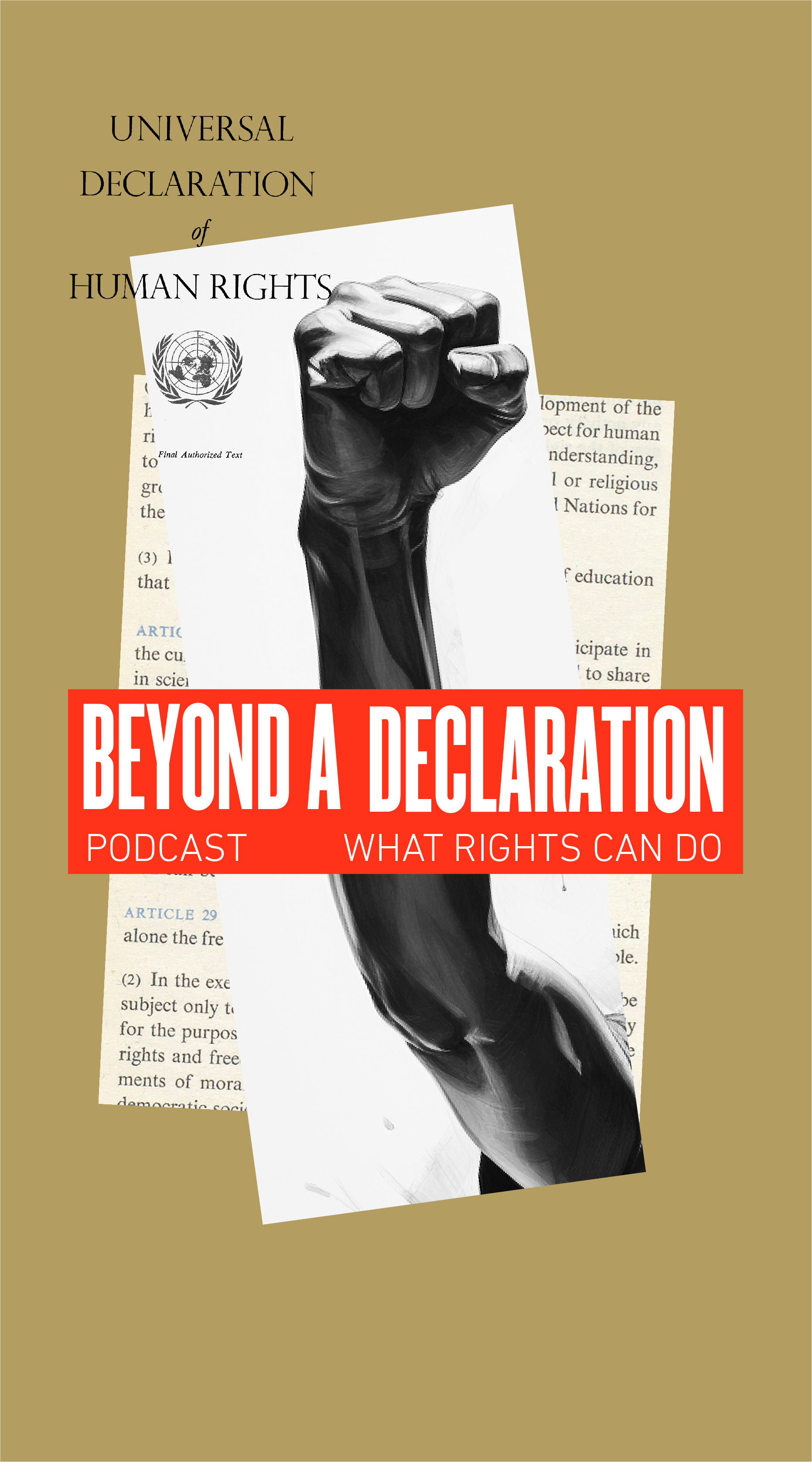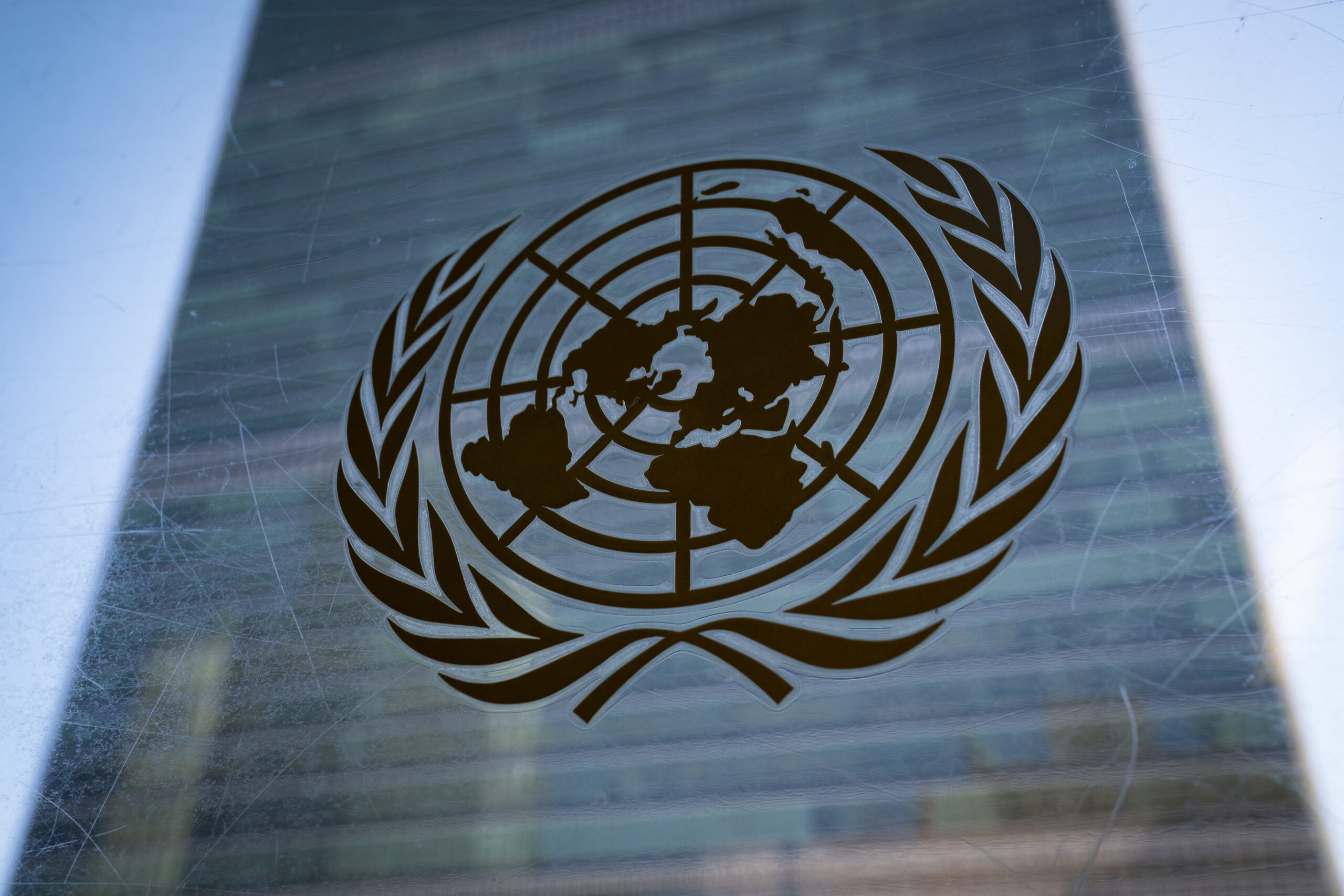The Rosa Luxemburg Stiftung New York and the Global Policy Forum are collaboration in a series of papers and expert activities addressing the shifting dynamics of multilateralism today, as the intersecting crises of climate, finance, food, and conflict call for the strengthening of international cooperation and the democratization of the United Nations (UN).
In this paper, researchers Barbara Adams and Marina Lent address the need for a complete overhaul of the UN system, including reforming the Security Council, to create a kind of multilateralism capable of counteracting the global crisis.
Scroll down to read the full paper or download as pdf.
Executive Summary
Failure of the UN Security Council to live up to its mandate and effectively address lack of security among nations and promote lasting peace is having a cascade effect on confidence in and standing of multilateralism and the UN system. Succinctly put by President of the UN General Assembly Csaba Kőrösi (UNGA): “To the outside world we are One UN. One UN that must deliver on the promise to ensure global peace and security.”
“Such failures have eroded trust and led many to question the viability and legitimacy of the Security Council but also the legitimacy of the UN system itself,” Costa Rica noted in the UNGA session on use of the veto on April 26, 2023. “We cannot afford trust in multilateralism to fade away.”
The mainly national self-interested use of the veto by the five permanent members (P5), the non-representative Security Council (SC) membership, P5 domination of processes including the Security Council agenda and certain high-ranking UN appointments (primarily that of the Secretary-General) have long been understood and acknowledged by most UN Member States. Reform of the UN—including the Security Council and General Assembly—has been on the UN agenda for decades, with little to show for it. But the recent accumulation of failings and inadequacies of the UN, as in international cooperation and global governance more generally, is spurring perceptible political energy and urgency among most member states to press forward in ways big and small to make substantive changes.
Momentum is palpable on many fronts, notably in the UNGA. “Do you want a General Assembly that complements the work of the (Security) Council, being more active on specific situations, as it has done in the past? Do you want the General Assembly to take decisions, consider concrete recommendations and send these back to the Council? Which direction do you think we should go?” asked the UNGA President at the debate on the issue of the veto. “The issue of the use of the veto affects the whole UN. And the decisions taken in these halls—or the lack of decisions—reverberate world-wide.”
This momentum toward reform has been particularly noticeable in the recent meetings of the UNGA’s Intergovernmental Negotiations (IGN) process, as well as on initiatives triggered by paralysis in the Security Council over the conflict in Ukraine.
On April 26, 2022, the UN General Assembly (UNGA) adopted a resolution (A/RES/76/262): Standing mandate for a General Assembly debate when a veto is cast in the Security Council. Often referred to as “the veto initiative,” the resolution calls for Security Council accountability by convening a formal meeting of the General Assembly within 10 working days of a veto disabling the Security Council’s ability to act. It requires the Council to issue a report to the General Assembly, and the Assembly to deliberate on the matter, with priority given to hearing from the relevant veto-wielding state.
Spearheaded by Liechtenstein and co-sponsored by 38 Member States, UNGA RES/76/262 was adopted without a vote. The General Assembly has met four times in sessions as provided for by the resolution.
On April 26, 2023, one year to the day from the adoption of the resolution, the GA Plenary met on Item 60 of its Agenda, entitled “Use of the Veto”. In addition to strong support for the improvement in accountability represented by resolution, the debate also demonstrated widespread support among Member States for further initiatives to curb use of the veto, with several states stating a preference, despite obvious obstacles, for abolition of the veto entirely.
In the IGN meetings, governments have been calling for a variety of measures:
- reining in the use of the veto;
- expansion of SC membership to the point where it proportionally reflects Member States of the world;
- supporting more effective, dynamic and inclusive participation of elected SC members;
- creating accountability of the SC to the entire UN membership via its mandated annual report to the GA; and
- increasing both the formal and informal interaction of the Security Council and General Assembly, viewing them as complementary, rather than running on separate tracks.
Many States, including Japan on behalf of the G4 group of aspiring permanent Council members (Brazil, Germany, India, and Japan), hold that “adequate regional representation can be achieved only by expanding both permanent and non-permanent categories.” Other Member States argue that entrenching advantage and privilege of powerful countries through the expansion of permanent membership, especially with veto powers, operates against the principle of equality of member states and will disable the Security Council even further.
What permeates deliberations is the need to reorient multilateralism, including the Security Council, toward accountability and responsibility. It is said time and again by States: the veto is not a privilege; it is a responsibility. The responsibility is toward a) the principles of the UN Charter; b) UN member states as a collective on behalf of whom the SC is empowered by the UN Charter to act; and c) creating peace and security. Although many countries aspire to see the end of the Council veto powers, current veto holders can easily prevent this.
The Secretary-General convened the High-Level Advisory Board on Effective Multilateralism (HLAB), which is composed of former heads of state and government as well as leaders from civil society, the private sector, and academia, to address the full range of global governance from macroeconomics to security issues to the trust deficit. The HLAB has called for the General Assembly to take on a larger role if the Security Council cannot or will not act in the face of threats to international security. Liechtenstein, in the GA debate on “use of the veto,” highlighted the importance of “enhancing the role of the Assembly on matters of peace and security,” and noted that “We are grateful to see that the High-Level Advisory Board on Effective Multilateralism has built upon this theme in its report ‘A Breakthrough for People and Planet.’”
In anticipation of the lack of unity in the Security Council for the foreseeable future, Liechtenstein has emphasized that a “General Assembly that is active in the area of peace and security is therefore key to ensure the thriving multilateralism envisaged by the Charter.” Costa Rica articulated more forcefully the responsibility of the Member States of the General Assembly: “It is incumbent upon the General Assembly – where every Member State is a Permanent Member—to ensure that the Security Council’s Permanent Members’ ineptitude does not bring the whole UN system down with it. We can do this by ensuring this chamber [GA] maintains a culture of integrity, vigilance, and custodial duty that matches the gravity of the UN’s mandate.”
In addition to ongoing efforts to reform the Security Council itself, initiatives have been taken to broaden the intergovernmental mandates and strengthen the capacity of the international community to support the peace agenda. The Peacebuilding Commission (PBC) was established in 2005 by resolutions of both the General Assembly and the Security Council to advise both bodies on an integrated approach to peacebuilding and act as a bridge between the principal intergovernmental UN organs, regional organizations, national and local government officials, and civil society sectors. Since its inception, the PCB has engaged with 23 countries and regions to address political, socio-economic and security challenges in conflict-affected situations. This orientation provides valuable experience to build on for confronting the newer, more complex drivers of conflict in today’s world.
Most States recognize that multilateralism will continue to be jeopardized and undermined without Security Council reform. But positions differ on reform priorities and not all States go beyond paying lip service to the principle that multilateralism needs to be founded on the ability to act for the common good, for the long term, and on the basis of universal rights and principles.
These positions boil down to the difference between multilateralism viewed as a “balance of interests” proposition versus building multilateral peace and security work on the sovereign equality of members states united for the common good. This is articulated clearly by smaller states, who are only too aware that, in a “balance of interests” model, no matter how the system is structured, the interests of the powerful invariably outweigh those of less powerful states. As the HLAB report puts it, “a radical shift in our approach to global governance” is needed.
With great opportunity comes great risk. It is critical to get this right. A true breakthrough is needed to achieve the kind of multilateralism capable of counteracting and equitably addressing existential global threats such as ecological devastation, pandemics, conflict, famine and mass mortality, with priority given to the most vulnerable first, rather than to the most powerful. If the change that is decided on in the next few years does not succeed in shifting the fundamental orientation of multilateral governance, the opportunity of this heightened political moment will have been lost.
About the authors: Barbara Adams is President of Global Policy Forum and part-time professor at the New School. Trained as an economist, Barbara Adams’ experience and expertise have many facets – as a researcher and teacher, as a CSO policy advocate, and with a long tenure working for the United Nations. A consistent theme has been rights and justice in multilateralism, governance and sustainability. She has authored and co-authored many articles, reports, commissioned studies and books, and is a regular contributor in the Global Policy Watch briefings series and the annual Spotlight Report on Sustainable Development.
Marina Lent is the head of the Health Department of the Town of Aquinnah in Massachusetts on the island of Martha’s Vineyard. She has worked at various levels in the public sector, including on staff for MdB Ulrich Fischer (Bad-Hersfeld) and in the UN Secretariat, as well as NGOs such as Greenpeace and the Quaker United Nations Office.
Header Photo Credit: UN Photo/Mark Garten.



